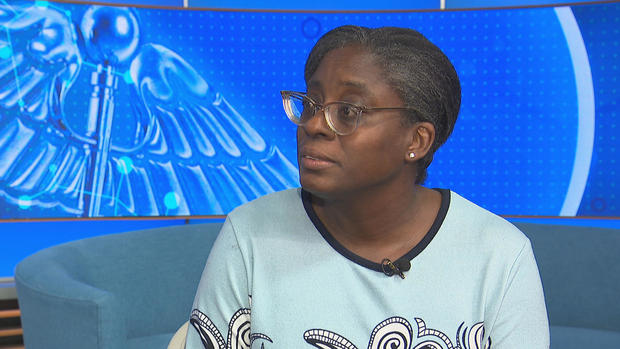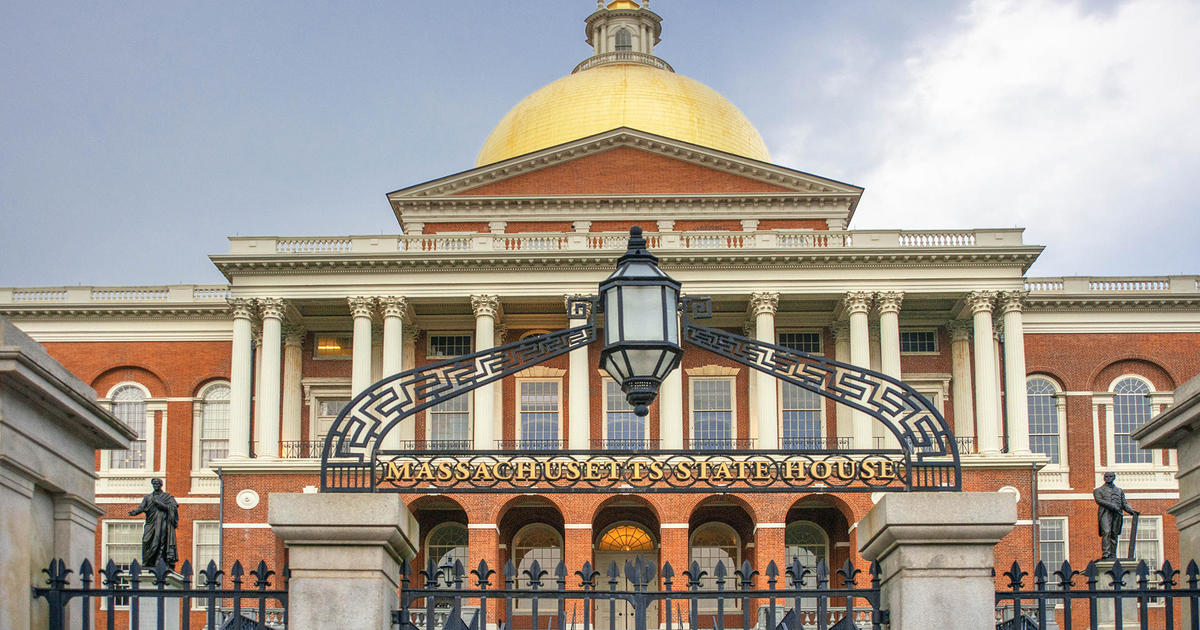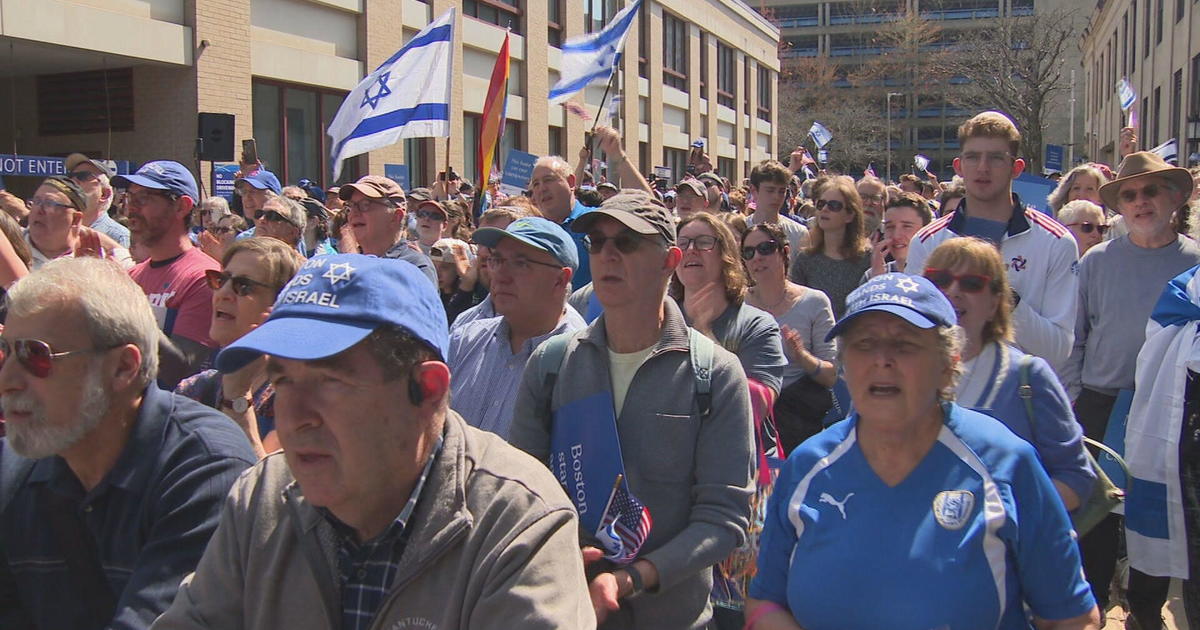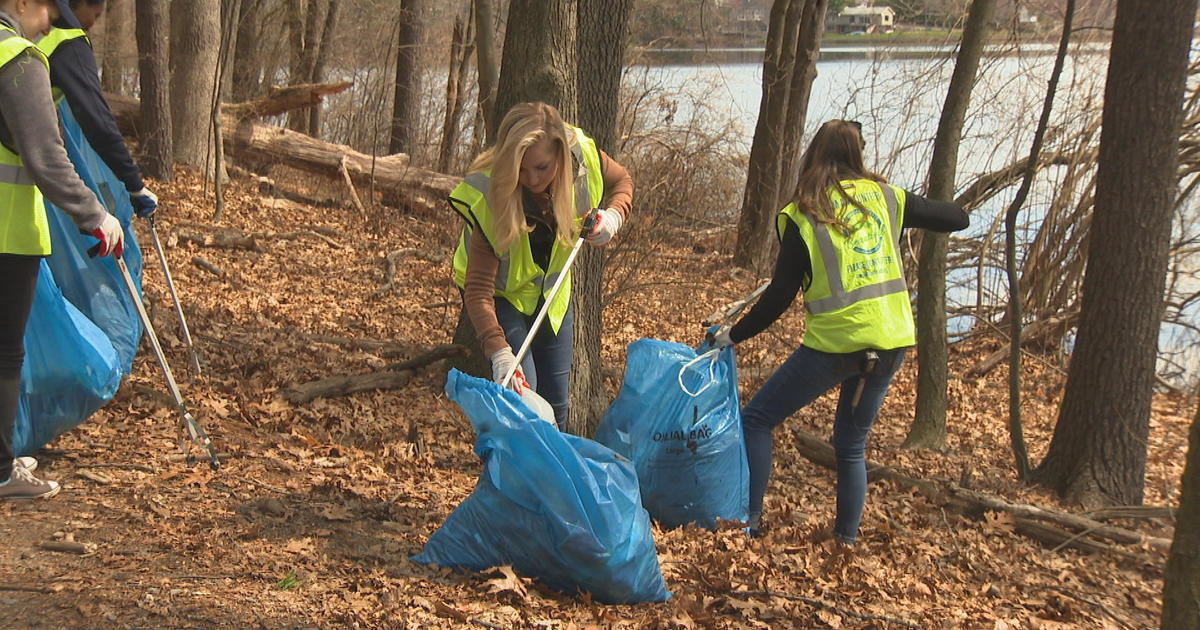Dr. Ridiane Denis helps Haitian migrants prepare for new lives and jobs in Massachusetts
BOSTON - Dr. Ridiane Denis doesn't hesitate when asked what she wants people to know about the Haitian migrants looking for work in Massachusetts. "I want them to know they are hard workers," Denis said.
With thousands of Haitian people moving into Massachusetts and migrant shelters filling up, she felt compelled to help. The idea for a volunteer-led job training program came to her in a brainstorming session at her kitchen table with her partner, Guichard Rodriguez. In 2023, she founded the non-profit Massachusetts Integrative Resources. The word integrate, she says, is central to the group's mission. "If you're from somewhere else, you want to be integrated," she said. Once she established MAIR, she put out the word that she was ready to begin training migrants for direct support personnel positions-jobs in group homes, day programs, and assisting the elderly.
Dr. Denis is Director of Clinical Research and Operations, General Clinical Research Unit (GCRU) at Boston University Medical Campus. (She is also a mother of four sons who is only half-joking when she says she works 30 hours a day.) With volunteers ready to help and migrants eager to learn, all she needed was a training space. That quest led her to Waltham and a kindred spirit in Gabriel Vonleh, CEO of Opportunities for Inclusion.
"They believe in the American dream. So, let's make it happen for them!" Gabriel said smiling. "This was our way to give back to people who were not looking for handouts." He says, when Dr. Denis approached him about using space in the building, he was happy to oblige. "This was a no-brainer."
Opportunities for Inclusion serves people with intellectual and developmental disabilities and their families. Its Waltham building is bustling Monday through Friday. But there was plenty of free space on weekends. Dr. Denis' Saturday training sessions began in October. The first week, there were 13 students. The following week attendance more than doubled. Students were excited for the training, even if getting to Waltham was a challenge. Some came from as far away as Brockton and left as early as 4:30 a.m. to arrive in Waltham on time. On more than one occasion, Dr. Denis and Guichard rented vans at their own expense to transport migrants to and from the training sessions. "They make me want to help them because they want it so much," she explains. "They are my motivation."
She understands their determination. Dr. Denis was born in Boston but spent her young life in Haiti. At 11, she moved to Massachusetts permanently but continued to visit relatives in Haiti. The Haiti of her childhood, she says wistfully, was a paradise. "The Haiti I know is not there right now. I hope that one day it is," she said. The migrants fleeing Haiti believe they can build a better life here.
Her goal is to help Haitian migrants become independent and contribute to their new home country. For four weeks, she split the day's training-and the class itself--into two parts. All students received the same material. Students who needed extra language support got it. The first part of the day focused on life skills-taking public transportation, using an ATM, and dressing for New England winters. They practiced conversational English. For the second half of the day, they focused on clinical training. Medical terminology and word usage ("I have an ache. I have a headache. I have a runny nose.") how to use medical equipment and-most importantly-CPR.
Dr. Denis could feel the students' excitement as they learned because, she says, they knew what acquiring the skills could mean for their future. "We weren't even done with the training, and they were already asking, 'What other certification can we get? We want to grow. We want more.'" The migrants who joined the program came from all walks of life. Most fled Haiti because of the violence and instability. Many left behind family members and careers. Some were nurses and medical technicians in Haiti. Guirlande Lubin was an administrative secretary with USAID. She says she left Haiti to save her own life. "Haiti is too dangerous. Too many gangs," she explained with the interpretive help of fellow migrant Claudel Esteve. She moved to Massachusetts to live with her sister and nieces and found a supportive community in MAIR's training program. She also found a job.
Once the four-week session was over, Gabriel gave the students three-day internships and hired two of the graduates. Guirlande is one of them. "We had to lead by example," he explains. "It's one thing to give the training. But after the training, if there's no opportunity, the training means nothing. So, it was very important to our organization to open our space but also to provide employment opportunities. It made it real. And it also sends a message to other people out in the Commonwealth to really... Come on, come on! We can do this as one big Commonwealth!"
In all, Gabriel has hired five migrants at Opportunities for Inclusion. He says they are exceptional workers-dedicated, committed and compassionate. Claudel, who was a law student in Haiti, calls the facility his "second home." He likes the clients, his co-workers, and the work. He says it fills him with a sense of purpose. He sends part of every paycheck back to Haiti for his mother, father, and sister. He also sends them videos and prays that, one day, they will also be able to live in the United States. "Every day I take in this country I am happy," he said.
For most of the past year, the number of Massachusetts job openings has moved between roughly 225,000 and 260,000. Many of those openings have proven difficult to fill. Gabriel points to the migrant population as part of the solution. "This is not a migrant crisis. This is a migrant opportunity," Gabriel said. "We need to look at it from a different perspective."
Dr. Denis agrees. She applauds state efforts to expedite working papers (including clinics designed to fast-track processing times) but says the typical months-long wait is discouraging for migrants who want to provide for themselves. "I think if we can-in any way, shape, or form-integrate them into the work force as quickly as possible, I think definitely we would see a change. The shelters won't be as overwhelmed. The system won't be as stressed," Dr. Denis said.
Many of the migrants who became certified in her first training session are still looking for work. Dr. Denis and her volunteers keep in touch with them-leading conversational English discussions and job search sessions on Zoom. Right now, she has 42 migrants on a waiting list for the next session and is looking for a new training space. Much as she appreciated the Waltham space, she is looking for something more centrally located. She says it doesn't have to be fancy. "Just a room with chairs and tables. That's all," she said.
Dr. Denis marvels at the migrants' resilience. She believes in them and their ability to succeed. A year from now she hopes to have trained thousands of migrants who drive past her in their own cars on their way to their homes. "Seeing them providing for their family. Seeing a smile on their faces when they get that first paycheck. Getting a call saying thank you. That's what makes it worth it for me," she said.
There were many thank yous during the graduation ceremony. Their gratitude was humbling. "Very humbling to see that I could actually make a difference-or try to make a difference-in somebody's life." Dr. Denis continued, "Even if it's a drop in the bucket, it makes me feel like I'm helping. That's the most important thing for me."
For more information about Massachusetts Integrative Resources visit mairconnect.org





